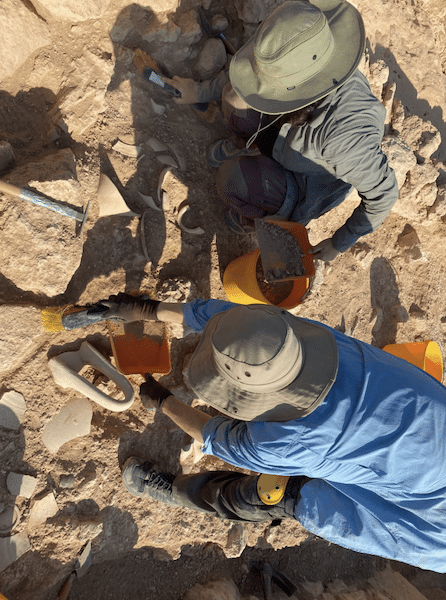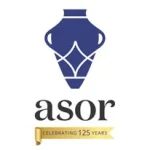
Digging Dirt in Cyprus
Riley Stockton, 2024 P.E. MacAllister Fieldwork Scholarship Recipient
This summer, I had the opportunity to participate in the Vigla Archaeological Field School, a sub-project of the Pyla-Koutsopetria Archaeological Project, based in Pyla, Cyprus. These excavations help to gain information about the history and exchange between Cyprus and the Eastern Mediterranean. The site was a military fortification from the Hellenistic period. The main purpose of excavation in this site is to better understand the purpose of this fortification site and its structures during this period. From the previous findings, it has been determined as a fortification site, but more information is still to be found on the daily life and activities of Vigla, as well as the previous structures that existed there. This experience was my first archaeological dig which was a truly unforgettable experience that deepened my understanding of the field.
Before this dig, my mental image of archaeology was somewhat stereotypical, but now, pottery sherds and layers of soil are what immediately come to mind. I never imagined I’d find myself sweeping dirt off of dirt or using a Munsell book to precisely match shades of soil, yet these became daily routines.
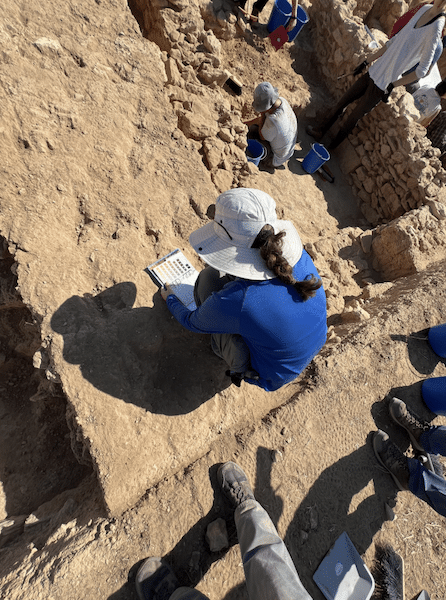
At the dig, along with two other students, I excavated a trench from start to finish, which gave me a comprehensive understanding of the archaeological process. This included the paperwork, the specific excavation techniques applied at different stages, and the importance of understanding the context of artifacts and their surrounding environment.
One of the techniques I learned was photogrammetry, a process that involves taking a series of photographs to create a detailed 3D model of the area. In the trench where I worked, we uncovered two distinct pottery deposits on separate floor surfaces. After carefully excavating around the artifacts, my peers and I meticulously cleared the surrounding area to ensure the best possible images could be captured. One of our project directors, Dr. Brandon Olson, then photographed the trench from every angle to build the 3D model.
Photogrammetry presented its own set of challenges, particularly with lighting. We could only take the necessary photos early in the morning when we arrived at 5:30 a.m. or when the sun was directly overhead. On one occasion, we had to rush to complete the process before the British military began their exercises at 7:30 a.m., as the site is located within a British military base. With the clock ticking, we managed to finish just in time, pack up, and evacuate the area.
Another time, as we prepared for photogrammetry, we noticed a thick wall of fog rolling in. We scrambled to clean the trench and take the necessary photos before the fog obscured the area. It was a race against nature so we could keep on digging.
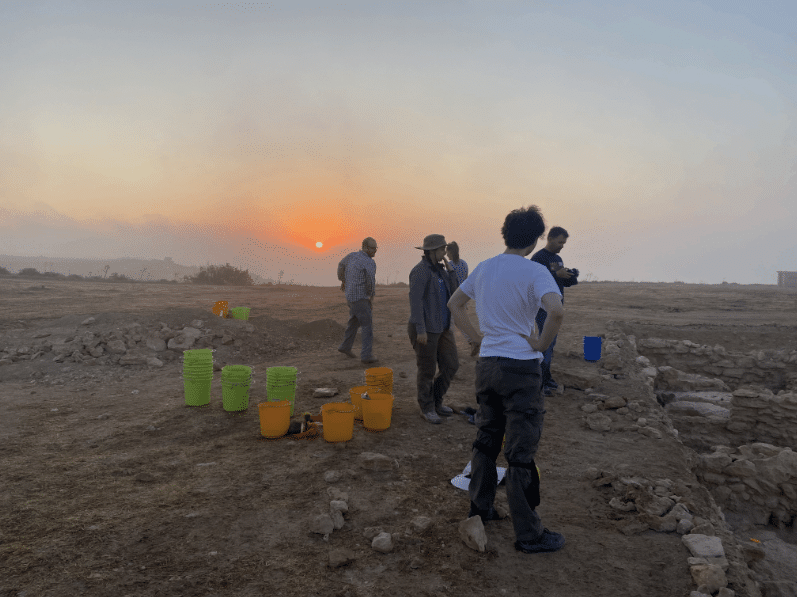
All in all, we managed to capture the necessary photographs despite the challenges we faced along the way. My trench mates and I, all first-time diggers, began and completed our trench together in just one month. The early mornings and relentless heat were tough, but I’m incredibly proud of the work we accomplished and deeply grateful for the unforgettable experience. A special thanks to ASOR and its donors for providing me with the opportunity to participate in this dig—I couldn’t have done it without their support.
For more information about the Vigla Archaeological Field School visit here.
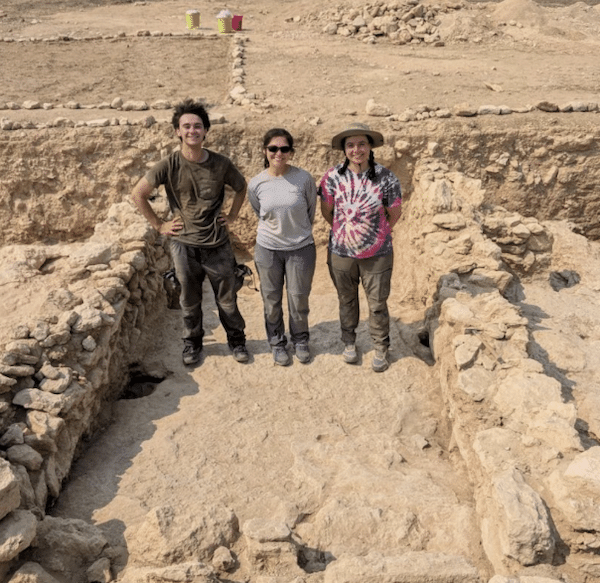
Riley Stockton is a junior at Reed College where she majors in Greek, Latin, and Ancient Mediterranean studies with a concentration in history and archaeology.
Read about other student experiences on the Vigla Archaeological Project here.
Latest Posts from @ASORResearch
Stay updated with the latest insights, photos, and news by following us on Instagram!
American Society of Overseas Research
The James F. Strange Center
209 Commerce Street
Alexandria, VA 22314
E-mail: info@asor.org
© 2023 ASOR
All rights reserved.
Images licensed under a Creative Commons Attribution-NonCommercial-ShareAlike 4.0 International License
COVID-19 Update: Please consider making payments or gifts on our secure Online Portal. Please e-mail info@asor.org if you have questions or need help.
